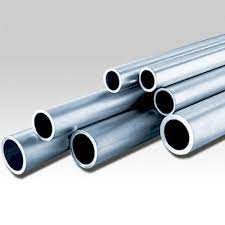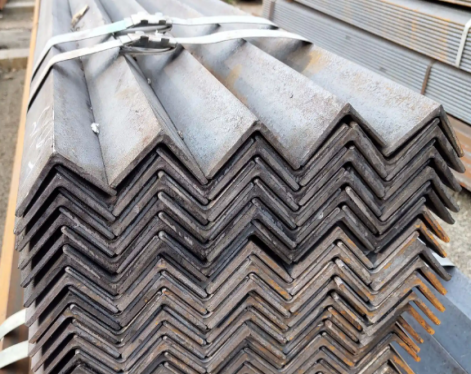The effects of carbon and silicon in the chemical elements of seamless steel pipes on the performance of seamless pipes are as follows:
1. Carbon (C): Carbon is the main element second only to iron in the steel used for seamless steel pipes. As the carbon content increases, the strength of the steel increases, while the plasticity and toughness, especially the low-temperature impact toughness, decrease, while the weldability, Corrosion resistance and cold bending performance are significantly reduced.
Therefore, the carbon content of steel for seamless steel pipe structures should generally not exceed 0.22%, and for welded structures it should be less than 0.2%. High carbon content will also reduce the atmospheric corrosion resistance of steel, and high-carbon steel in open-air stockyards will easily rust; in addition, carbon can increase the cold brittleness and aging sensitivity of steel.
2. Silicon (Si): Silicon is added to the raw material of seamless steel pipe as a reducing agent and strong deoxidizer during the steelmaking process, so the killed steel contains 0.15-0.30% silicon. If the silicon content in the steel exceeds 0.50-0.60%, silicon Becoming an alloying element. An appropriate amount of silicon can improve the strength of steel without significant adverse effects on plasticity, toughness, cold bending performance and weldability. Silicon can significantly increase the elastic limit, yield point and tensile strength of steel, so it is widely used in making spring steel.

Adding 1.0-1.2% silicon to quenched and tempered structural steel can increase the strength by 15-20%. Silicon is combined with molybdenum, tungsten, chromium, etc. to improve corrosion resistance and oxidation resistance, and can be used to make heat-resistant steel. Low carbon steel containing 1-4% silicon has extremely high magnetic permeability and is used in the electrical industry to make silicon steel sheets. When the silicon content is too high, the plasticity, toughness, corrosion resistance and weldability of the steel will be reduced.
The chemical composition of seamless pipes includes carbon C: 0.1~0.25% silicon Si: 0.5~0.80 manganese Mn: 0.10~1.40 sulfur S: allowed to contain ≤0.035% phosphorus P: allowed to contain ≤0.035% chromium Cr: 0.80~1.10 molybdenum Mo : 1.25~2.50 Vanadium V: 0.07~1.2 Copper Cu: Allowed content ≤0.30%.
As a metal pipe with a wide range of industrial uses, seamless pipes have many application scenarios. For example, in the construction field, seamless pipes can be used to make steel frames, steel beams and other building materials. They have excellent properties such as high strength and high durability, making buildings more stable and durable. At the same time, seamless pipes are also widely used in machinery manufacturing, petroleum, chemical industry and other fields. Seamless tubes are often used in machinery manufacturing to manufacture high-precision parts, such as bearings, gears, hydraulic systems and other transmission components. Seamless tubes are used in the energy industry to manufacture energy equipment such as nuclear power plants, solar panels, and wind turbines. Seamless tubes are mainly used in the automotive industry to manufacture components such as automotive engines, chassis and exhaust systems.
1. Carbon (C): Carbon is the main element second only to iron in the steel used for seamless steel pipes. As the carbon content increases, the strength of the steel increases, while the plasticity and toughness, especially the low-temperature impact toughness, decrease, while the weldability, Corrosion resistance and cold bending performance are significantly reduced.
Therefore, the carbon content of steel for seamless steel pipe structures should generally not exceed 0.22%, and for welded structures it should be less than 0.2%. High carbon content will also reduce the atmospheric corrosion resistance of steel, and high-carbon steel in open-air stockyards will easily rust; in addition, carbon can increase the cold brittleness and aging sensitivity of steel.
2. Silicon (Si): Silicon is added to the raw material of seamless steel pipe as a reducing agent and strong deoxidizer during the steelmaking process, so the killed steel contains 0.15-0.30% silicon. If the silicon content in the steel exceeds 0.50-0.60%, silicon Becoming an alloying element. An appropriate amount of silicon can improve the strength of steel without significant adverse effects on plasticity, toughness, cold bending performance and weldability. Silicon can significantly increase the elastic limit, yield point and tensile strength of steel, so it is widely used in making spring steel.

Adding 1.0-1.2% silicon to quenched and tempered structural steel can increase the strength by 15-20%. Silicon is combined with molybdenum, tungsten, chromium, etc. to improve corrosion resistance and oxidation resistance, and can be used to make heat-resistant steel. Low carbon steel containing 1-4% silicon has extremely high magnetic permeability and is used in the electrical industry to make silicon steel sheets. When the silicon content is too high, the plasticity, toughness, corrosion resistance and weldability of the steel will be reduced.
The chemical composition of seamless pipes includes carbon C: 0.1~0.25% silicon Si: 0.5~0.80 manganese Mn: 0.10~1.40 sulfur S: allowed to contain ≤0.035% phosphorus P: allowed to contain ≤0.035% chromium Cr: 0.80~1.10 molybdenum Mo : 1.25~2.50 Vanadium V: 0.07~1.2 Copper Cu: Allowed content ≤0.30%.
As a metal pipe with a wide range of industrial uses, seamless pipes have many application scenarios. For example, in the construction field, seamless pipes can be used to make steel frames, steel beams and other building materials. They have excellent properties such as high strength and high durability, making buildings more stable and durable. At the same time, seamless pipes are also widely used in machinery manufacturing, petroleum, chemical industry and other fields. Seamless tubes are often used in machinery manufacturing to manufacture high-precision parts, such as bearings, gears, hydraulic systems and other transmission components. Seamless tubes are used in the energy industry to manufacture energy equipment such as nuclear power plants, solar panels, and wind turbines. Seamless tubes are mainly used in the automotive industry to manufacture components such as automotive engines, chassis and exhaust systems.









